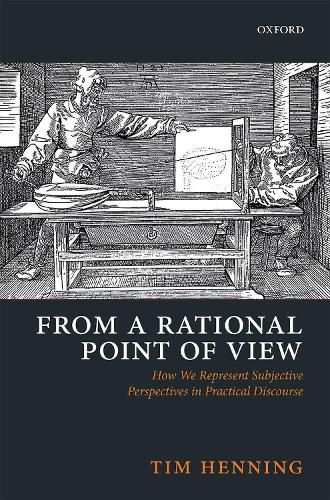Readings Newsletter
Become a Readings Member to make your shopping experience even easier.
Sign in or sign up for free!
You’re not far away from qualifying for FREE standard shipping within Australia
You’ve qualified for FREE standard shipping within Australia
The cart is loading…






When discussing normative reasons, oughts, requirements of rationality, motivating reasons, and so on, we often have to use verbs like believe and want to capture a relevant subject’s perspective. According to the received view about sentences involving these verbs, what they do is describe the subject’s mental states. Many puzzles concerning normative discourse have to do with the role that mental states consequently appear to play in normative discourse.
Tim Henning uses tools from semantics and the philosophy of language to develop an alternative account of sentences involving these verbs. According to this view, which is called parentheticalism, we very commonly use these verbs in a parenthetical sense. These verbs themselves express backgrounded side-remarks on the contents they embed, and these latter, embedded contents constitute the at-issue contents. This means that instead of speaking about the subject’s mental states, we often use sentences involving believe and want to speak about the world from her point of view. Henning makes this notion precise, and uses it to solve various puzzles concerning normative discourse. The final result is a new, unified understanding of normative discourse, which gets by without postulating conceptual breaks between objective and subjective normative reasons, or normative reasons and rationality, or indeed between the reasons we ascribe to an agent and the reasons she herself can be expected to cite. Instead of being connected to either subjective mental states or objective facts, all of these normative statuses can be adequately articulated by citing worldly considerations from a subject’s point of view.
$9.00 standard shipping within Australia
FREE standard shipping within Australia for orders over $100.00
Express & International shipping calculated at checkout
When discussing normative reasons, oughts, requirements of rationality, motivating reasons, and so on, we often have to use verbs like believe and want to capture a relevant subject’s perspective. According to the received view about sentences involving these verbs, what they do is describe the subject’s mental states. Many puzzles concerning normative discourse have to do with the role that mental states consequently appear to play in normative discourse.
Tim Henning uses tools from semantics and the philosophy of language to develop an alternative account of sentences involving these verbs. According to this view, which is called parentheticalism, we very commonly use these verbs in a parenthetical sense. These verbs themselves express backgrounded side-remarks on the contents they embed, and these latter, embedded contents constitute the at-issue contents. This means that instead of speaking about the subject’s mental states, we often use sentences involving believe and want to speak about the world from her point of view. Henning makes this notion precise, and uses it to solve various puzzles concerning normative discourse. The final result is a new, unified understanding of normative discourse, which gets by without postulating conceptual breaks between objective and subjective normative reasons, or normative reasons and rationality, or indeed between the reasons we ascribe to an agent and the reasons she herself can be expected to cite. Instead of being connected to either subjective mental states or objective facts, all of these normative statuses can be adequately articulated by citing worldly considerations from a subject’s point of view.